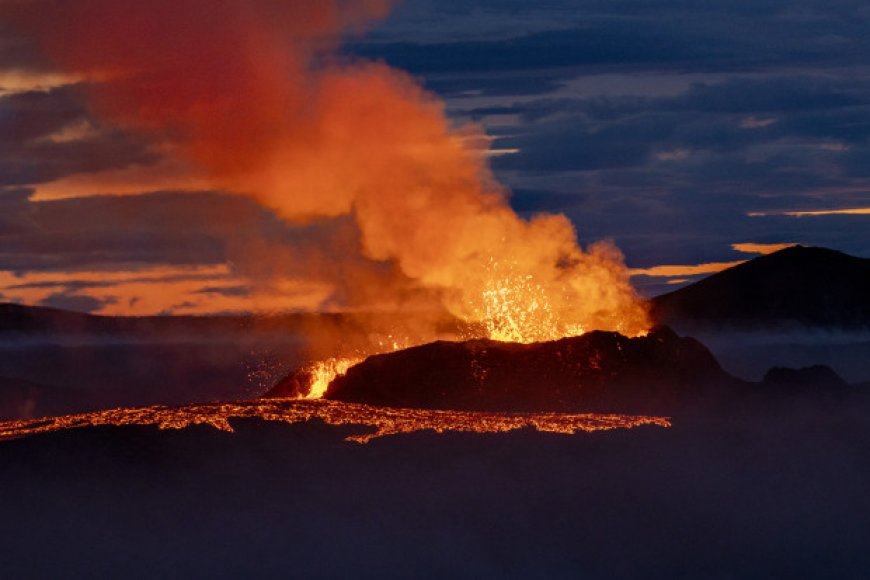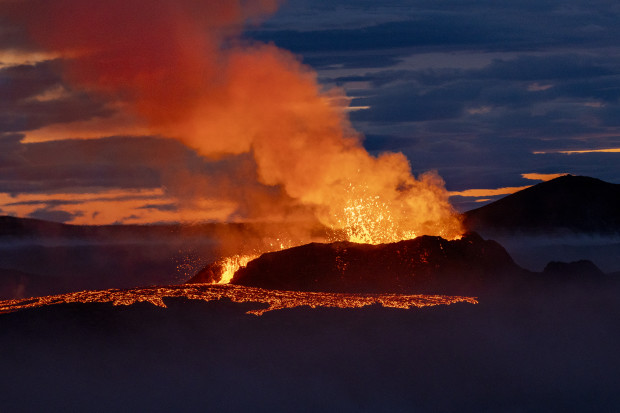Travelers are paying big money to see an exploding volcano in Iceland
A fissure in Iceland has earned the moniker of "Earth's newest baby volcano."

Frequent flyers and airline junkies will remember the Icelandic volcano eruption that threw the industry into chaos back in 2010.
When the difficult-to-pronounce Eyjafjallajökull volcano broke through a glacier and started spewing ash and fumes into the air around it in April 2010, any flights going to Reykjavik's Keyflavik International Airport or even passing through the airspace had to be immediately rerouted while later ones were also canceled.
Don't Miss: Airline to launch first flight from the U.S. to this isolated island
As transatlantic flights between North America and Europe will often pass over Iceland, over 95,000 flights were canceled in the week between April 14 and 25, 2010 while a prolonged ash cloud continued to impact travel throughout the spring. One estimate calculated the global airline industry was losing over $200 million per day for weeks.
The birth of a new 'baby volcano' is prompting tourism
While any volcanoes that erupted since then have not caused nearly the same level of disruption, another Icelandic volcano is affecting travel in a very different way.
On July 10, a new "baby volcano" was created in Iceland when a part of a mountain called Fagradalsfjal cracked open and started sending small jets of molten lava into the air. The created fissures were small, closed quickly after exploding and are otherwise not powerful enough to create the kind of damage many have come to associate with a volcanic explosion.
But one of the fissures did grow into a crater that is still actively releasing bouts of ash; the volcano known as Litli-Hrútur was given the moniker "Earth's newest baby volcano."
Word of the active volcano soon spread among both earth scientists and hard-core nature fans. While one will not be able to actually get close to the volcano (the entire area around Mount Fagradalsfjall has been closed due to the smoke), tourists hoping to film it from the nearby areas have been flocking both in the immediate aftermath of the explosion and later in the hopes of catching at least some of the scene.
Iceland warns tourists to stay away (but not all do)
Eventually, the local parks board set aside a trail that tourists can take to get a view of the red glow.
"If you tell people they cannot go they'll find a way to sneak in and get into trouble," Sigridur Dögg Gudmundsdóttir, who heads the Visit Iceland tourism board, told the Financial Times. "We never advertise eruptions but needed a safe route."
In the last two decades, Iceland has exploded as a popular tourist destination. While the remoteness of the island had formerly pushed tourists away from prioritizing it as a destination, the advent of social media helped grow interest in its fjords and Northern lights.
But as the the volcano is still in the active stage of eruption, local officials are warning both locals and visitors against disregarding advisories and getting too close.
"It is still too early to declare that the eruption at Litli-Hrútur is over, though it appears evident that a new phase of the eruptive activity in the Reykjanes peninsula has started," Iceland's Meteorological Office said in a statement on August 8. "It is premature to anticipate if the seismic activity will increase again and a new eruption will begin in the future or not."
What's Your Reaction?


























































